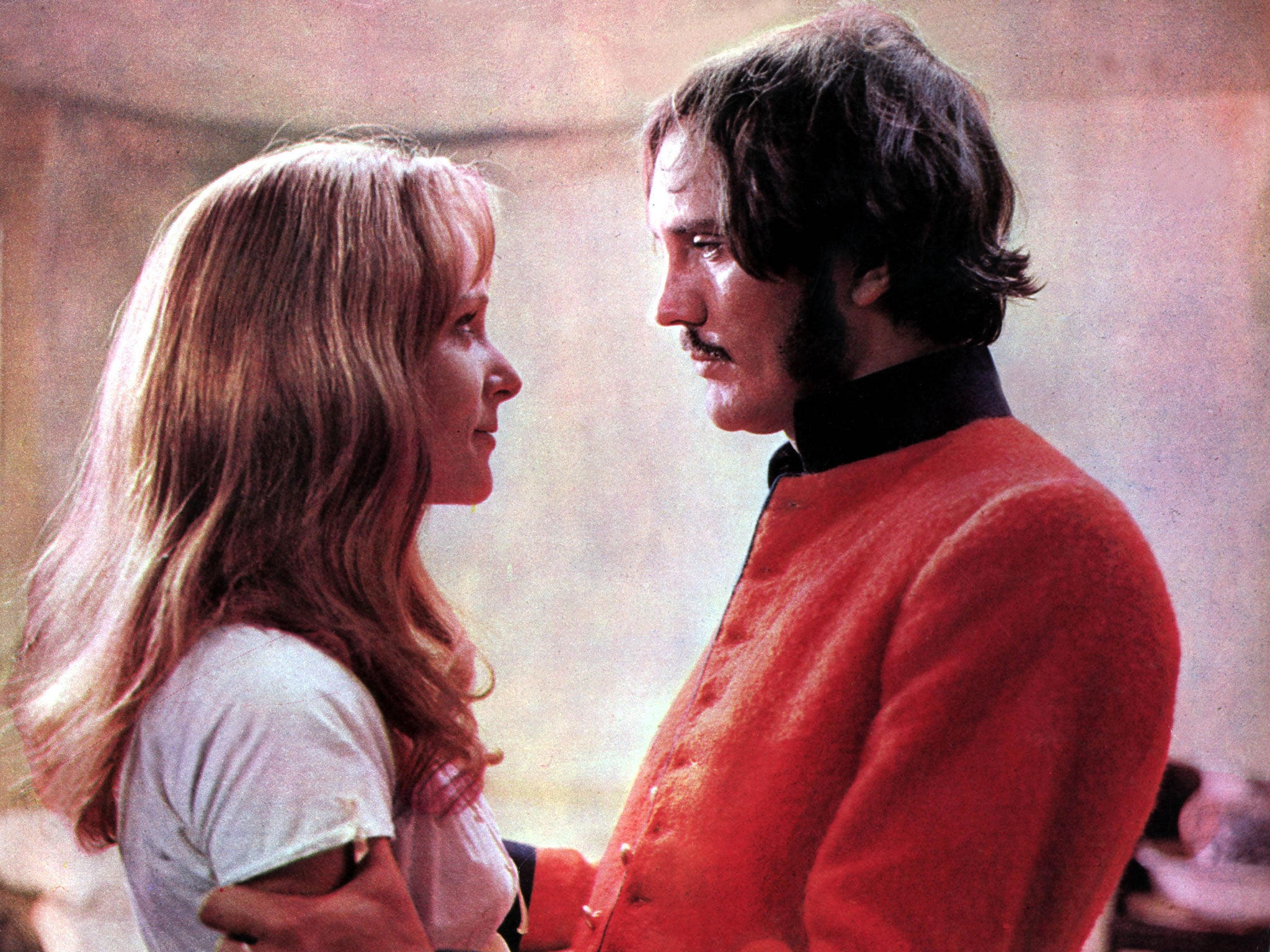Far From The Madding Crowd, film review: Craftsmanship and emotional intensity
(U) John Schlesinger, 165 mins. Starring: Alan Bates, Julie Christie, Peter Finch, Terence Stamp

In advance of the release later this year of the new version of the Thomas Hardy classic starring Carey Mulligan and Matthias Schoenaerts, the 1967 film from John Schlesinger is being revived in a digital restoration overseen by its cinematographer, Nic Roeg. What is striking, almost 50 years on from when it was made, is its extraordinary craftsmanship and its emotional intensity.
This is not one of those handsomely mounted but stilted period dramas that is stifled by the fussiness of the costume and production design. From the bizarre early scene in which a dog drives Gabriel Oak's sheep over the cliff to its storms, fires and murders, Schlesinger's film has a raw, elemental charge. It manages to portray rustic life without seeming quaint. Roeg's cinematography uses the colour red in just as dramatic a fashion as in Don't Look Now a few years later. Whenever we see Terence Stamp's cavalry officer, his crimson uniform provides a garish contrast to the muted greens and browns of the Wessex countryside. Richard Rodney Bennett's Oscar-nominated music, meanwhile, with its haunting flute passages, underscores the characters' sense of yearning and unhappiness.
Bathsheba Everdene (Julie Christie) has three suitors, all with very different temperaments and representing contrasting ideas of masculinity. There is the solid, reliable Gabriel Oak (Alan Bates), the reserved landowner William Boldwood (Peter Finch) and the dashing swordsman Frank Troy (Terence Stamp). She struggles to choose between them and everyone suffers.
Finch, in particular, endures agonies of jealousy and doubt as she strings him along. There are some derivative moments along the way. The circus scenes, for example, seem heavily influenced by Ingmar Bergman's Sawdust and Tinsel. The film is also inordinately long – almost three hours – but it has a kick that most other Hardy adaptations have conspicuously lacked.
Join our commenting forum
Join thought-provoking conversations, follow other Independent readers and see their replies
Comments
Bookmark popover
Removed from bookmarks